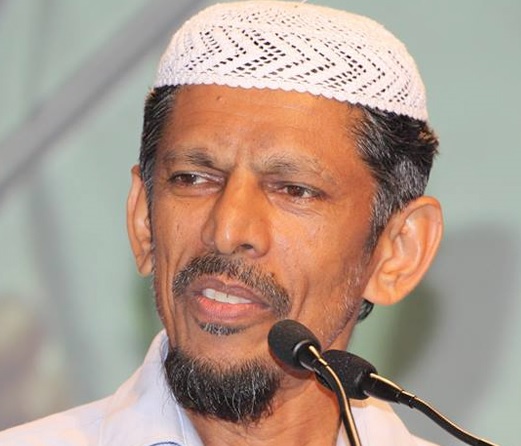With the arrest of Rasheed Hajjul Akbar, who headed the Jamaat-e-Islami organisation for 24 years until September 2019, the Sri Lankan government has intensified action against Islamist extremism in the island nation.
Local media quoted police spokesman DIG Ajith Rohana as saying that the 60-year-old former leader of Islamic organisation was arrested by the Terrorism Investigation Division (TID) from Dematagoda, a suburb in Colombo, last Friday.
He has been arrested for allegedly promoting extremism in the country, police announced on Saturday.
Rohana said he was publishing articles in a magazine published by the organisation to promote Wahabism and Jihadist ideology in Sri Lanka.
Sri Lanka's Daily News said that the arrest came as an investigation panel on the 2019 Easter Sunday bombings "had called for banning Wahaabism in the island nation as it inspires Muslim religious extremism".
Also read: Sri Lanka to ban burqa and madrasas
On April 21, 2019, nine suicide bombers, who had pledged allegiance to the Islamic State group and belonged to a local Islamist extremist group, carried out a series of blasts through three churches and hotels in Sri Lanka, killing 270 people and injuring over 500 on the Easter Sunday.
Last week, Sri Lanka's Minister of Public Security Sarath Weerasekera had told the Parliament that action would be taken to ban Madrasas and burqas as a measure to prevent the recurrence of Islamic extremist activities in the country.
Making a ministerial statement on the Report of the Presidential Commission of Inquiry on the Easter Sunday attacks, the Minister said that all those directly or indirectly responsible for the terror attacks on April 21, 2019 would be arrested.
The minister said that the Lankan intelligence authorities last year found a female wing being trained by Zahran Hashim, believed to have masterminded the Easter attacks, to carry out suicide attacks in the country.
Weerasekera told the Parliament that the Terrorist Investigations Division and the intelligence services had managed to trace other extremist organisations operating in the country and make arrests.
The rising concern over Islamist extremism spans across continents.
In a referendum on March 7, Switzerland voted in favour of banning face coverings in public, including the burka or niqab worn by Muslim women.




















